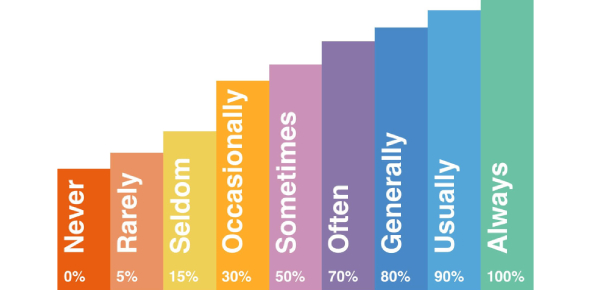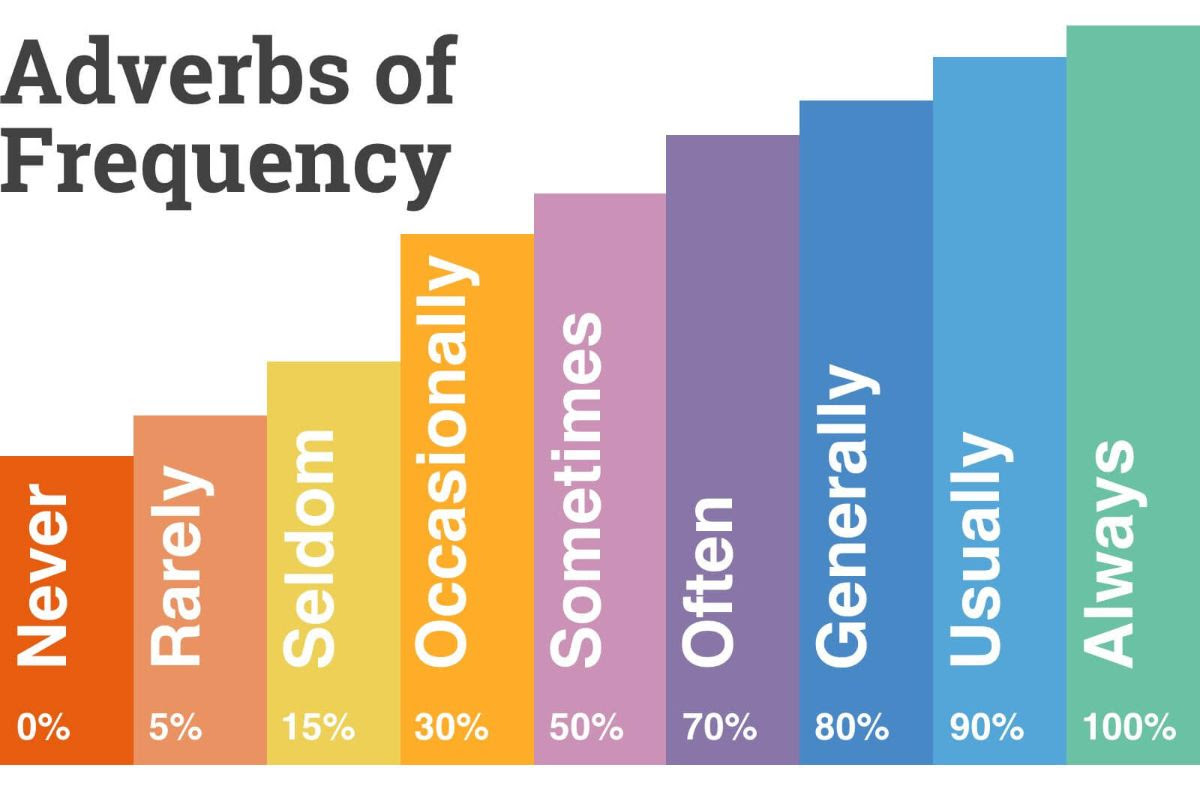Gabbyは有資格のプロコーチ(英語ネイティブ)からのコーチングを受けながら、自主的にトレーニングを継続して「英語で仕事をする!」という目標を達成する言語脳科学プログラムです。
自主トレで成果を出すにはとにかく量を積み重ねること!そのために、毎日の生活習慣にGabby自主トレを組み込むことを推奨しています。
この記事では、コーチがあなたにぴったりのトレーニング方法を提案できるよう、英語で自分の生活習慣やルーチンワークを説明できるようになること、そして、頻度を表す副詞を使いこなせることを目指します!
それでは、今日も3分で英語ブログを流し読み。
In this article, we’ll be taking a look at describing habits and routines in English.
Let’s get started!
Common activities
To talk about what you do regularly, you’ll need to know the correct vocabulary for a variety of activities. While we can’t cover everything you might do in a day, here are some common actions that we’ll use in a few examples later.
| Sleep | Wake up | Get up | Get ready for bed | Go to bed |
| Hygiene | Take a shower/take a bath | Wash my face | Brush my teeth | Floss (my teeth) |
| Chores | Do the laundry | Water the plants | Wash the dishes/do the dishes | Go grocery shopping |
| Health | Work out/exercise | Go for a walk | Stretch | Go to the gym |
| Free time | Read | Chat with friends | Unwind | Watch TV |
| Work | Get ready for work | Go to work/get to work | Get off work/leave work | Stay overtime/do overtime |
| School | Get ready for school | Go to school/get to school | Get out of school | Do my homework |
| Food | Make breakfast/lunch/dinner | Have/eat breakfast/lunch/dinner | Have dessert | Have a snack |
Now that we’ve looked at some typical activities, let’s discuss how to talk about them! We’re going to examine three elements of describing a routine: the simple present tense, time expressions, and adverbs of frequency.
The simple present tense
When you’re describing a habit or routine, you should use the simple present tense. That’s because the simple present is used to talk about repeated actions—things that happen again and again.
Here are some examples for you:
→ I do the family’s laundry every Saturday.
→ On school days, we have breakfast at 7 a.m.
Time expressions
Often, if you’re describing something you do regularly, you’ll use a time expression to say when you do it. There are lots of ways to express time—here are some common ones:
Days of the week/the weekend
→ My friend and I work out together on Mondays.
→ My husband always goes grocery shopping on the weekend.
Note: Here, “Monday” is plural because the activity happens every week on the same day. You could also say “every,” in which case the day would be singular (e.g., “every Monday”).
Times of day (morning, afternoon, evening, night)
→ The first thing I do every morning is splash cold water on my face.
→ I like to go for a walk with my dog in the evening.
Specific times
→ He tries to leave work at 4 p.m.
→ My mom exercises at 10 p.m. most nights.
Before, after, when, etc.
→ My brother and I eat a snack after school.
→ When I finish my homework, I like to relax.
Every day, every week, etc.
→ I read my favourite blog every day.
→ We go to the swimming pool every week.
Adverbs of frequency

It’s also common to use adverbs of frequency to talk about how often—or frequently—you do an activity. Below, we’ve listed the adverbs of frequency from most to least frequent.
Always (100%)
→ I always take a shower before school.
Usually (90%)
→ She usually chats with friends after work.
Normally/generally (80%)
→ My dad normally makes dinner when he gets home.
Often/frequently (70%)
→ I often have to stay overtime at work.
Sometimes (50%)
→ We sometimes have dessert after dinner.
Occasionally (30%)
→ My kids occasionally water the plants, but I usually have to do it.
Seldom (15%)
→ I seldom take a bath—I prefer showers.
Rarely/hardly ever (5%)
→ My wife rarely brings lunch to work; she always buys something.
Never (0%)
→ She never does her homework right after school—she waits until the evening.
Get in the habit
No matter what your daily habits are, talking about them is great practice! To build up your English skills, try to regularly practice describing your routines using different time expressions and adverbs of frequency.
usually, normally, often, と英語を話すときには頻出する副詞ですが、頻度を表す数字と一緒に並べてみると、理解度が深まりませんか?
また、決まり事や、繰り返し起こる(する)ことを説明する時は、Simple Present Tense (現在形)の動詞で表現しますよ。
I usually get to the station around 8am. When I wait for a train to go to work, I always log in Gabby!
ネイティブスピーカーが現在形をどんな場合に使うのかを、こちらで説明していますよ!





